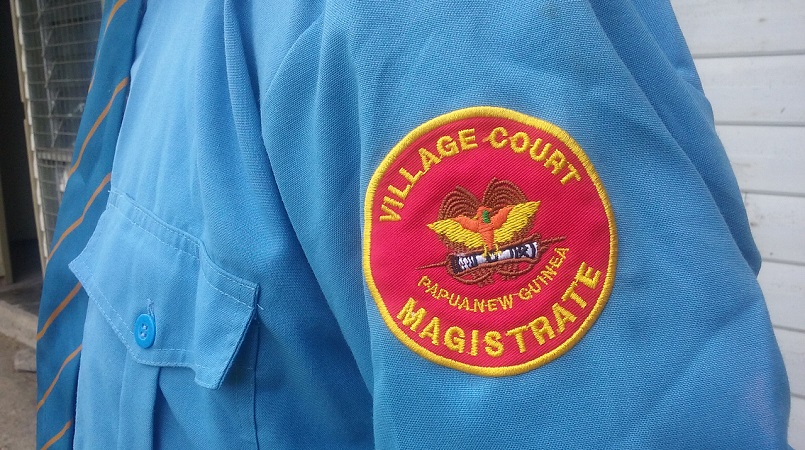
The government has been called on to improve three main areas in the village court level that have been identified by the higher judiciary.
Payments for service, independent appointment of village court officials and designated areas to carry out court functions are three areas that need improvement in the village court level.
Chief Justice Sir Salamo Injia outlined these areas of concerns during his recent visit to Bereina in Central Province, saying they are areas that the government must look into as areas of concerns.
This is because the village courts hear 80 percent of disputes at the village level before it goes to the district courts or the higher courts.
“If these improvements are not made, it’s going to impact on the operation of the other three levels of court,” he said.
The other three levels of court are District, National and Supreme Court.
He said village court magistrates must be paid for their service. They must also be appointed by an independent body and must carry out their functions in a court facility to avoid the risk of having their decisions questioned.
“They must be paid their dues and paid directly. Payments to village courts over the years have been made through intermediates – through some middle people or agencies and the money has not reached the hard working village court people.
“Please pay their salaries or allowances directly to their own bank account,” Sir Salamo said.
In Bereina, half of its 13 village court magistrates get paid through the ALESCO payroll system and Sir Salamo wants to see the others also put on that system.
The Chief Justice further raised concerns over the appointment process of village court magistrates, saying they must be fair, neutral and independent and should be done by an independent body or commission or person.
“There are concerns over the appointment process. That the appointment process is being interfered with; the appointment is being made by the elective government somewhere.
“My idea is that hopefully one day, the appointment of village court officials will be made by an independent body like the Judicial and Legal Service Commission, which appoints judges and magistrates of district courts.
“And I am pressing this idea with the government to ensure that one day, the appointment process of village courts will rest with an independent body, by independent body, I mean an independent body like the courts.”
He said the area in which village court magistrates exercise their duties is no different to judges and magistrates in district courts.
The only difference is that village courts apply customary law.
“But where do they sit? They need to sit and discharge their duty in a properly designated place.
“What kind of respect are people going to give to people who sit under the mango tree and make decisions? It lacks respect and integrity and bribery creeps in. All kinds of activity creeps in, thereby the decisions that they make face the risk of losing respect and integrity.
“It’s time the government starts building village court houses. I’m building court houses for the national, supreme and district courts. I’m not going to be building court houses for the village courts, I don’t have money.
“So my challenge to the government is address these three areas of concern and address it effectively so that we do not leave the village courts behind, they have to operate at par with the other courts,” he added.
